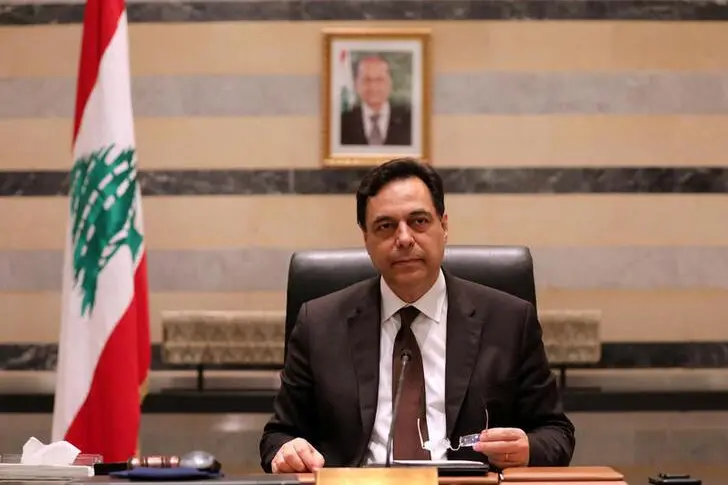PHOTO
BEIRUT: Caretaker Prime Minister Hassan Diab Thursday criticized the limited international support directed to Lebanon in its fight against coronavirus, during a special session of the United Nations General Assembly in response to coronavirus.
"More than any time in its history, Lebanon finds itself with extremely limited international support. While other countries received emergency International Monetary Fund lines for COVID-19 response, Lebanon, being in a debt moratorium, didnt have access. External financing has been slow in coming and in very limited amounts," he said in his statement during the 31st special session of the United Nations General Assembly in response to the COVID-19 pandemic held on Dec. 3-4 at the UN headquarters in New York with many leaders joining via video.
He asked the international community to channel more aid to Lebanon as it faces a multitude of crises during the pandemic.
I sincerely hope that a special consideration would be given to developing countries including Lebanon, many of whom face the dire prospect of economic and social meltdown as well as deep and debilitating recessions, he said.
In his speech, Diab shed light on the many challenges Lebanon faced as the pandemic hit at the end of February, highlighting the fact that Lebanon was already in ongoing unprecedented crises economically and socially.
Diab noted that Lebanons initial response with tackling the first wave of the virus was successful, as the Lebanese government was among the first to order a nationwide total lockdown and had swiftly established a ministerial coronavirus prevention committee that took the necessary measures to contain the pandemic.
He also explained how designating the Rafik Hariri University Hospital as the epicenter of coronavirus treatment during the first few months of the pandemic was highly efficient as it allowed other hospitals to prepare and raise their levels of readiness to take in coronavirus patients.
[This strategy] proved its effectiveness in keeping Lebanon in containment phase and among the first 15 countries that crushed the first wave of the virus, he said.
Diab explained that Lebanons health care sector is fragmented with hospitals of varying capabilities as 84 percent are mainly located in large cities and are private.
Successful at containing the first wave of coronavirus infections, Lebanon was hit hard with its second wave after the horrific Beirut Port blast on Aug. 4 after which cases grew exponentially.
The health care sector as a result was compromised, with three major hospitals in Beirut destroyed and having to take in around 6,000 injured people from the blast that also killed more than 200.
Diab drew attention to the impact of lockdowns on an already troubling socioeconomic situation in the country, with 60 percent of the population living in poverty and 23 percent in extreme poverty.
The government has put together a modest economic package to try to offset the impact of the new shock on the population. However, this package only represents 1 percent of our GDP and remains well below what other countries are spending to alleviate the COVID-19 impact on its socioeconomic environment. That underlines the extreme necessity of international assistance to reinforce the social safety net in Lebanon, he said.
While Diab criticized the lack of COVID-19 specific financial support to Lebanon, the country remains in a precarious situation where a bailout cannot be unlocked unless a new government implements reforms, however its formation has so far been in deadlock while Diabs caretaker government remains in place with limited powers.
Copyright 2020, The Daily Star. All rights reserved. Provided by SyndiGate Media Inc. (Syndigate.info).





















